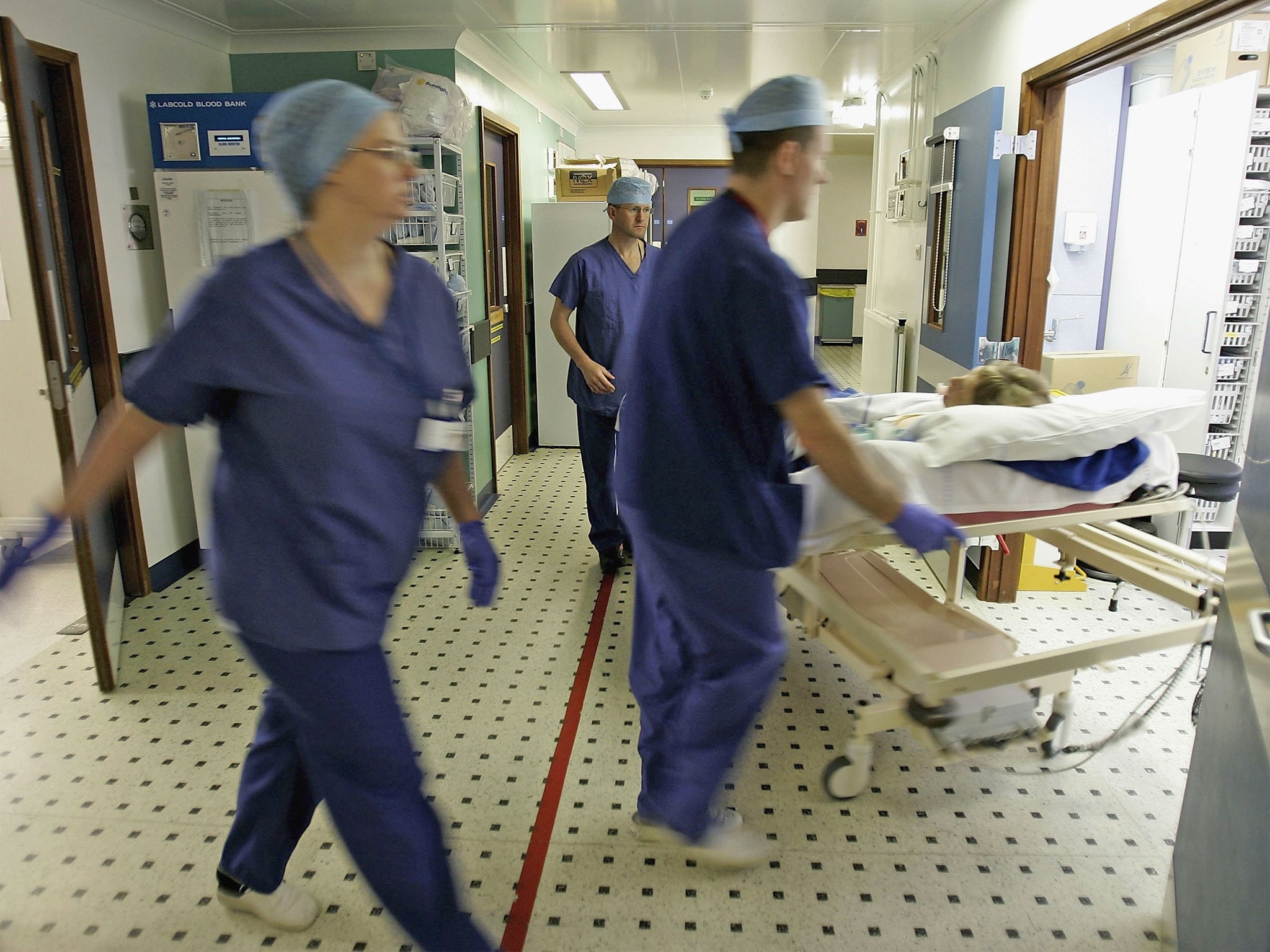Have senior doctors work at weekends or face huge fines, hospitals told
The days of hospitals relying on junior doctors at the weekend are numbered, the director of NHS England has said

Your support helps us to tell the story
From reproductive rights to climate change to Big Tech, The Independent is on the ground when the story is developing. Whether it's investigating the financials of Elon Musk's pro-Trump PAC or producing our latest documentary, 'The A Word', which shines a light on the American women fighting for reproductive rights, we know how important it is to parse out the facts from the messaging.
At such a critical moment in US history, we need reporters on the ground. Your donation allows us to keep sending journalists to speak to both sides of the story.
The Independent is trusted by Americans across the entire political spectrum. And unlike many other quality news outlets, we choose not to lock Americans out of our reporting and analysis with paywalls. We believe quality journalism should be available to everyone, paid for by those who can afford it.
Your support makes all the difference.Hospitals that fail to deliver the same standard of care at weekends as during the week are to face huge fines, the director of NHS England has announced.
Sir Bruce Keogh plans to eradicate the practice of relying on junior doctors at weekends with consultants being conspicuously absent, he has said.
The move follows a major review of seven-day services amid concerns over high death rates of patients treated on Saturdays and Sundays.
Recent research found that 4,400 lives a year are lost because of inadequate staff cover.
Under the plans to be published today trusts will be contractually-bound to run a full service seven days a week - with breaches costing them as much as 2.5 per cent of their annual income of up to £500 million.
Hospitals that refuse or fail to provide safe weekend care could also face losing their right to use junior doctors - a prospect that fills hospitals with “horror”, Sir Keogh told The Sunday Times.
A seven-day NHS would “undo more than 50 years of accumulated custom and practice which have failed to put the interests of patients first”, he told the newspaper.
Within three years all patients admitted as an emergency to a hospital ward will see a consultant within 14 hours, and those already in hospital will be reviewed by the senior level doctors every 24 hours.
Routine surgery will also be available for minor conditions, such as hernias, as well as blood tests, heart checks and biopsies, saving patients from having to take time off work.
Following the review, services such as X-rays, ultrasounds, CT and MRI scans will be carried out promptly at weekends.
“Two things are key to this,” he said. “One is the availability of diagnostic tests at the weekend, because the key to treating somebody is a diagnosis.
“Then you need someone experienced to interpret those tests and to institute the right treatment.
“People are still kept waiting at the weekend for a diagnosis. We have a system that is not built around the convenience of patients and is not compassionate to patients for part of the week.”
Dismissing criticisms that plans could be extremely costly, Sir Keogh said the changes will cost just 2 per cent of the NHS's operating budget of £97 billion.
He argued that theatres, consulting rooms and recovery wards left empty over the weekend are inefficient and a seven-day service could mean fewer resources are required.
NHS England declined to comment on the review ahead of its publication.
Dean Royles, chief executive of the NHS Employers organisation, said: “Seven-day working is probably the most important issue facing the NHS at the current time, and movement in this direction is essential if we are to ensure its sustainable long-term future.
“The NHS can't afford to sit back and rest on the laurels of its 65-year history.”
A British Medical Association (BMA) spokeswoman said: “The BMA has been clear in its support for consistently high quality patient care being delivered seven days a week.
“Doctors firmly believe that patient outcome should not be affected by what day of the week they fall ill.
She added however that seven-day care is a “complicated problem which will not be easily resolved by one single 'quick fix”'.
'It's not just about having more consultants, it's also about having enough diagnostic and support staff and community facilities to ensure a doctor can do basic things like order a scan, a blood test or discharge a patient on a weekend,” she said.
Join our commenting forum
Join thought-provoking conversations, follow other Independent readers and see their replies
Comments